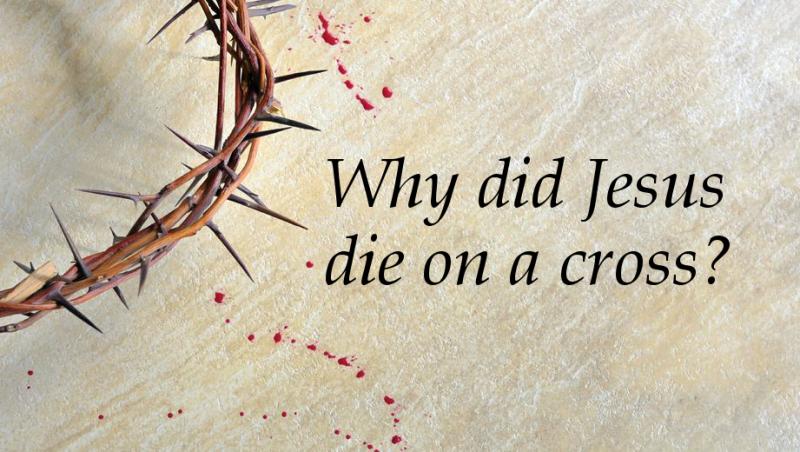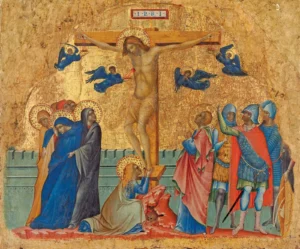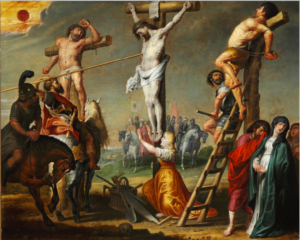
What Does Good Friday Mean? Here’s What to Know About the Holy Day Celebrated by Christians Worldwide

Good Friday is a solemn and significant day in the Christian liturgical calendar, observed annually on the Friday preceding Easter Sunday. It commemorates the crucifixion and death of Jesus Christ, a pivotal event that holds profound theological and spiritual meaning for Christians around the world. This article delves into the origins, significance, traditions, and global observances of Good Friday, shedding light on why this day is considered both a day of mourning and a cornerstone of Christian faith.
“In His Sacrifice, We Find Grace – Good Friday Reflections” 2025
Origins and Significance of Good Friday

The term “Good Friday” may seem paradoxical, given that it marks the day of Jesus’ suffering and death. However, the word “Good” in this context is derived from an older meaning, signifying “holy” or “sacred.” Another theory suggests that “Good” is a corruption of “God’s Friday,” similar to the German “Gottes Freitag.” Despite the sorrow associated with the day, Christians regard it as “good” because of the salvation and redemption that Jesus’ sacrifice brought to humanity.
According to Christian doctrine, Jesus’ crucifixion was not merely a tragic event but a divine act of atonement for the sins of mankind. As stated in Romans 3:25–26, “For God presented Jesus as the sacrifice for sin. People are made right with God when they believe that Jesus sacrificed his life, shedding his blood.” This belief underscores the theological importance of Good Friday as a day that signifies God’s love and justice.
Liturgical Observances and Traditions

Good Friday is observed with various liturgical practices that emphasize reflection, penance, and reverence. The day is marked by:
Church Services: Many Christian denominations hold services that include the reading of the Passion narratives from the Gospels, hymns, and prayers. In the Roman Catholic Church, the liturgy often features the “Adoration of the Cross,” where congregants venerate the cross, symbolizing Jesus’ sacrifice.
Fasting and Abstinence: Traditionally, Christians observe fasting and abstinence from meat on Good Friday. In some cultures, this extends to a complete fast until after sunset, followed by a simple vegetarian meal.
The Stations of the Cross: This devotional practice involves a series of 14 images or sculptures depicting Jesus’ journey to Calvary. The faithful move from station to station, reflecting on each event, fostering a deeper connection to the Passion of Christ.
Processions and Reenactments: In countries like the Philippines, Spain, and parts of Latin America, communities participate in processions that reenact the events leading to the crucifixion. These public displays serve as a powerful reminder of Jesus’ suffering and the communal aspect of faith.
Global Observances and Cultural Variations

Good Friday is observed worldwide, with each region incorporating its unique cultural expressions into the commemoration.
India: In states with significant Christian populations, such as Kerala, Goa, and Assam, Good Friday is a public holiday. Services are held in churches, and many Christians observe a day of fasting and reflection. In some areas, processions and reenactments of the Passion are conducted, drawing the community together in shared devotion.
Philippines: The Philippines is renowned for its elaborate Good Friday observances, including the “Salubong” (a pre-dawn ritual reenacting the meeting of the risen Christ and His mother) and the “Pabasa,” a continuous chanting of the Passion narrative. In some regions, individuals participate in literal reenactments of the crucifixion, underscoring the deep devotion of the Filipino people.
Spain: Spanish cities such as Seville and Malaga are famous for their Semana Santa (Holy Week) processions. These processions feature elaborate floats depicting scenes from the Passion, accompanied by penitents in traditional robes. The solemnity and artistry of these events reflect Spain’s rich religious heritage.
Bermuda: A unique tradition in Bermuda involves flying kites on Good Friday. This custom symbolizes the ascension of Jesus into heaven and serves as a joyful expression of faith.
Germany: Known as “Karfreitag,” Good Friday in Germany is a day of quiet reflection. Public entertainment is restricted, and many businesses remain closed. The subdued atmosphere encourages contemplation and reverence.
Theological Reflections and Contemporary Significance

For Christians, Good Friday is more than a historical remembrance; it is a day to reflect on the profound theological implications of Jesus’ death. It serves as a reminder of the cost of sin and the depth of God’s love. The Apostle Peter writes, “Christ suffered for our sins once for all time. He never sinned, but he died for sinners to bring you safely home to God.”
In contemporary times, Good Friday continues to inspire acts of charity, community service, and social justice. Many churches organize outreach programs, food drives, and support for the marginalized, embodying the spirit of sacrifice and compassion that Good Friday represents.
Conclusion
Good Friday stands as a cornerstone of Christian faith, intertwining themes of sacrifice, redemption, and divine love. Its observance, rich with tradition and profound meaning, unites Christians worldwide in a shared expression of faith and devotion. As believers reflect on the significance of this day, they are reminded of the enduring message of hope and salvation that emanates from the cross.





